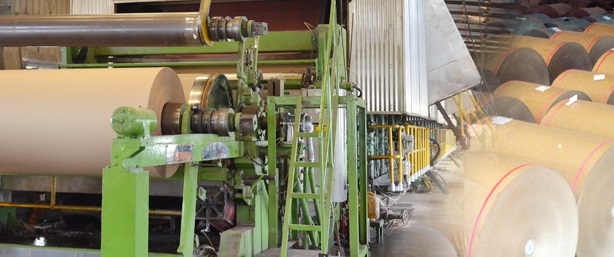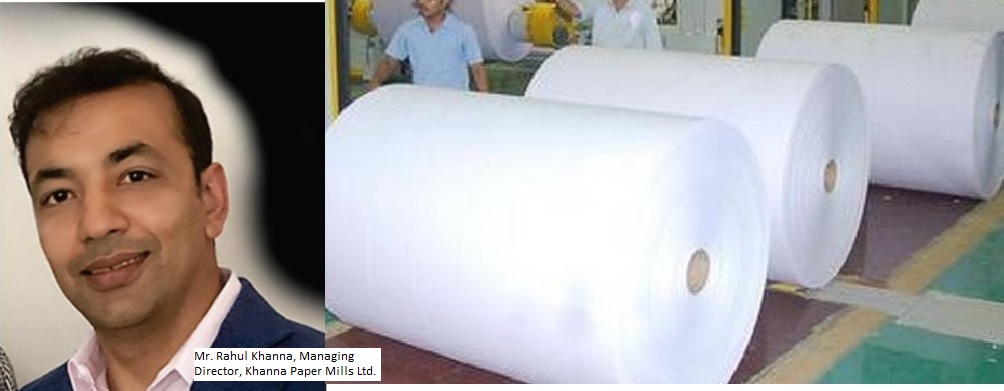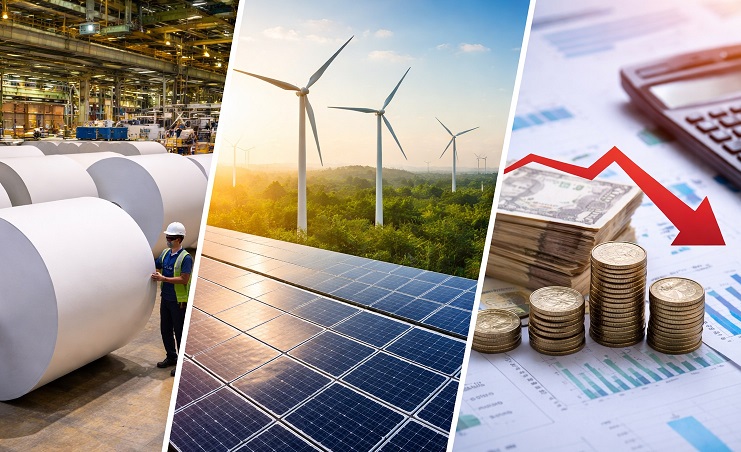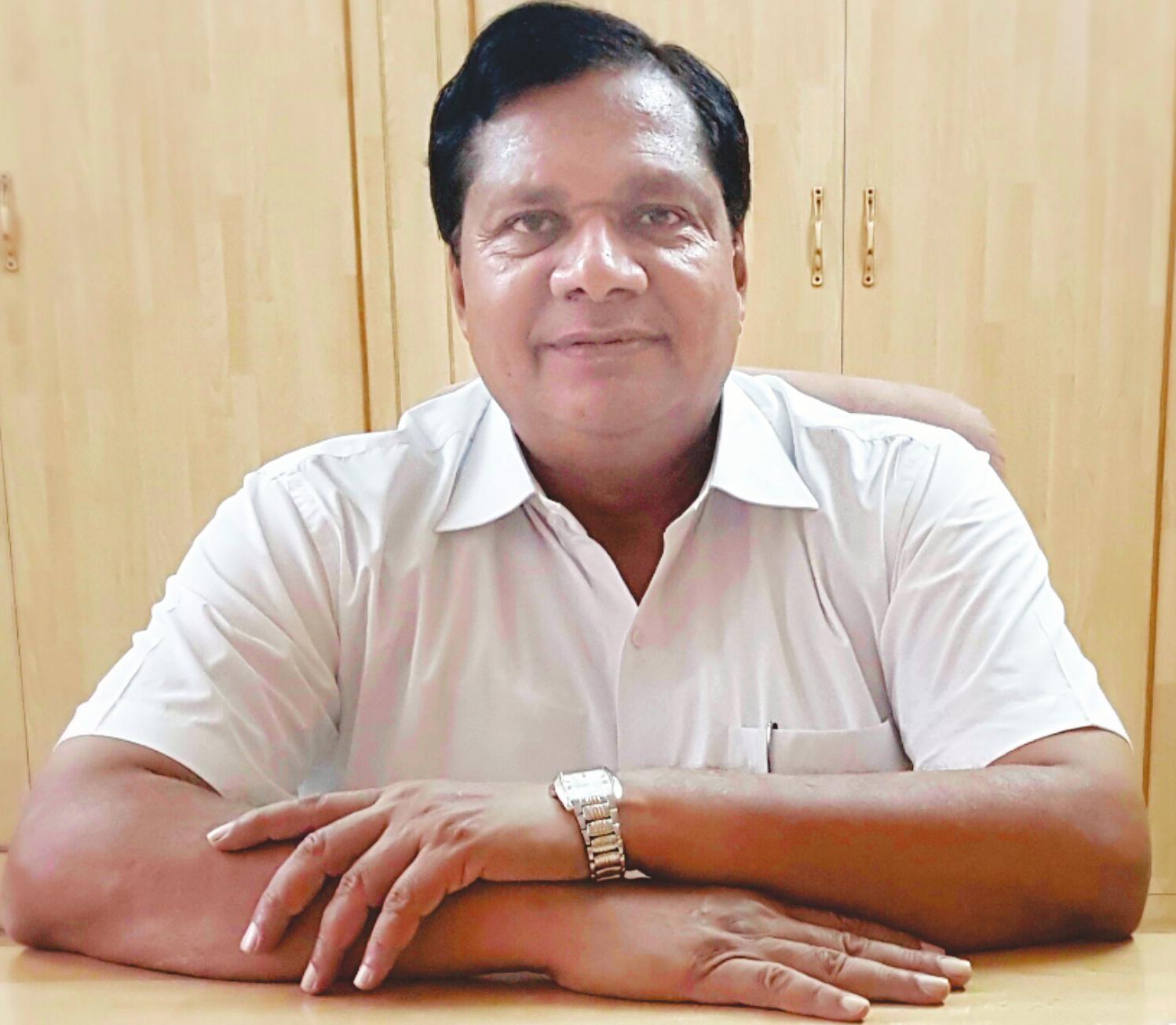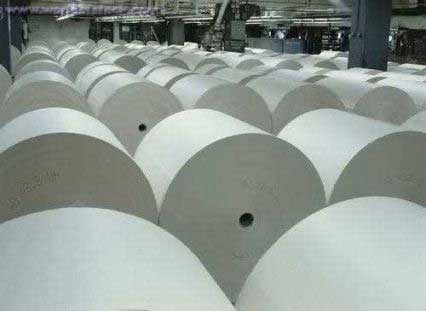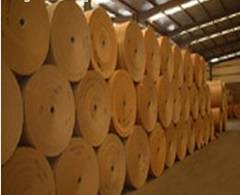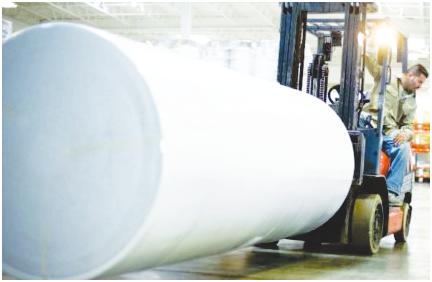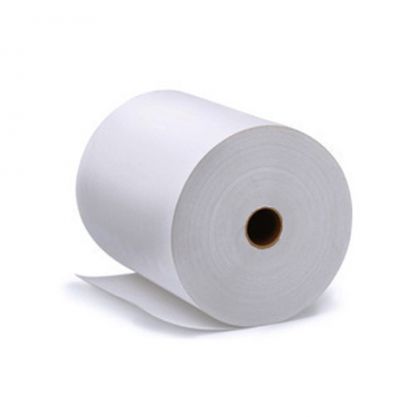Century Pulp and Paper developed several alternatives to plastic, producing Green pulp, a unique and eco-friendly variant utilised in mfg. tableware items
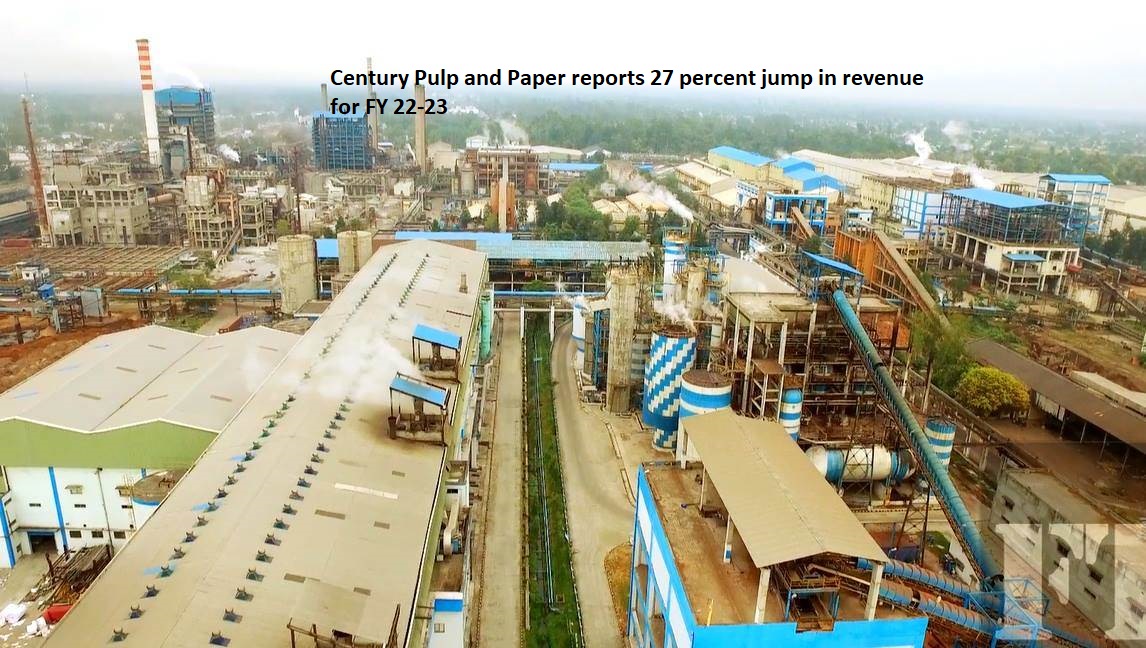
Century Pulp and Paper developed several alternatives to plastic, producing Green pulp, a unique and eco-friendly variant utilised in mfg. tableware items
- For the production, CPP has been utilising a number of palpable raw material species, including eucalyptus and poplar, veneer scrap, bamboo, bagasse, and recycled wastepaper
- Century Pulp and Paper reports a 27 percent jump in revenue for FY 22-23
Lalkua | The Pulp and Paper Times
Nestled at the foothills of the Himalayas in Lalkua, Uttarakhand, Century Pulp and Paper (CPP) stands out as a prominent player in the industry. With a strong focus on quality, CPP has established itself as a renowned producer of premium writing and printing paper, board, Rayon Grade Pulp, and tissue products.
Over the past year, the Pulp and Paper business has remained committed to the core values of Century Textiles and Industries Limited (CTIL) and has worked tirelessly to ensure that the vertical is on the forefront of the pulp & paper industry. The vertical does this by developing a good balance between commercial success and social and environmental responsibility. Pulp and Paper had an overall growth in revenue of 27% and recorded total sales worth INR 3,572 Crores.
These outstanding outcomes were primarily driven by robust demand observed in pulp and paper vertical. The continuous improvement of the business’ performance is owed to the maintenance of demand from sectors like schools, offices, etc. Additionally, there has been an increased emphasis on health since the pandemic, and hence, demand for tissue papers has been constantly on the rise” stated by Mr Vijay Kaul, Chief Executive Officer, Pulp and Paper in the Annual Report of CTIL for FY 22-23
On the comprehensive energy management within Pulp and Paper, Mr R.K. Dalmia, Managing Director, CTIL, said in the report that, we have embarked on a comprehensive energy management to identify areas of high consumption and implement effective energy management strategies. Through these efforts, we have successfully reduced our carbon footprint and enhanced energy efficiency. Water conservation initiatives, such as water-efficient fixtures and wastewater recycling, have also been key priorities, ensuring responsible water usage throughout our operations. Our commitment to sustainable forestry practices has led to extensive tree plantation initiatives, effectively offsetting CO2 emissions and contributing to a greener future.
Mr Kaul further added, “Our dedication and prioritisation to responsible sourcing, sustainable forestry, and sustainable production practices have enabled us to be a leader in sustainability initiatives, while developing a solid image within the community and meeting customer demands. For the production we have been utilising a number of palpable raw material species, including eucalyptus and poplar, veneer scrap, bamboo, bagasse, and recycled wastepaper. In addition to providing environmentally friendly and biodegradable items, we have also developed several alternatives to plastic.”
“Moreover, we have started using wood bark, which was previously dumped and fed to a chipper, as fuel in boilers. We saved about 1,803 tonnes of coal by using 4,123 MT of barks and perul as a fuel in boilers. We have been able to fulfil about 45% of our total energy consumption by renewable energy, thanks to our efforts to promote ecologically clean, secure, and energy-efficient operations” He stated.
By emphasising on sustainable forestry practices, such as responsible tree harvesting and reforestation efforts, CPP can ensure a steady supply of raw materials while preserving the environment. This commitment to sustainable sourcing not only meets CPP customer expectations but also enhances the Company's reputation as an environmentally responsible industry player. Additionally, being Forest Stewardship Council (FSC) certified, supports us in providing a competitive edge in the market by assuring customers of the sustainable origin of the Company's products.
The adoption of renewable energy sources, such as solar, biomass presents an opportunity for Pulp and Paper vertical to reduce carbon footprint and operating costs. Furthermore, CPP has also implemented waste reuse initiatives, such as using residual biomass from the production process as a source of bioenergy or converting waste products into value-added materials.
Pulp and Paper Manufacturing:
Our manufacturing plant in Lalkua, Uttarakhand district of Nainital, spans across 396 acres of land with a production capacity of 4.81 lakhs MT per annum. In addition to our main facility, we have strategically positioned board and tissue cutting facilities, including quick service centers in Baddi, Sonipat, Bharuch, Hyderabad, and Lalkua.
Diverse Product Offerings:
Our expertise lies in the production of fine Writing & Printing Paper, including MICR Cheque, Overlay Tissue, Maplitho and Copier, as well as virgin fiber grade soft tissue including Facial Napkin, Kitchen, Toilet and Carrier tissue. Additionally, we are one of the leading manufacturers of Multilayer Packaging Board, supplying Folding Box Board (FBB), Solid Bleached Sulfate (SBS), Cup Stock grades. Our commitment to innovation extends beyond conventional paper products, as we also produce Century Green pulp, a unique and eco-friendly variant that finds applications in tableware items.
Century Green Pulp and Its Significance:
One of the notable highlights of our operations is the production of “Century Green pulp”. Century Green Pulp is derived from bagasse using advanced molding technology. This pulp is specifically utilised in manufacturing tableware items, showcasing our commitment to manufacture and invest in sustainable products. By promoting the use of pulp to produce tableware items, we actively contribute to reducing environmental impact and promoting the use of biodegradable materials. The tableware produced from this green pulp not only meets the strict regulations set by the Food and Drug Administration (FDA) but also complies with the guidelines prescribed by the Food Safety and Standards Authority of India (FSSAI) for food packaging products.
Renewable energy utilisation:
We contribute to a cleaner and more sustainable energy mix by increasing our reliance on renewable energy, such as solar, bagasse, boiler fuel, pith and bioenergy and support the global transition toward a low-carbon future. Increasing the use of renewable energy sources is an essential strategy for reducing greenhouse gas emissions and mitigating climate change. We have set up a 2.6 MWp solar power plant to increase the share of renewable energy in our overall energy consumption and are already using bio mass – pith and other sources of bio mass energy to generate 7,77,261 MJ of energy
Improving energy efficiencies:
We are dedicated to improving energy efficiencies in our operations, particularly in terms of steam and power consumption, as part of our commitment to sustainability. By identifying opportunities to enhance energy efficiency, we aim to reduce our carbon footprint and contribute to a greener environment. One notable example of our energy-saving efforts is the increased capacity of the IR Dryer on our board machine, which was installed last year. This enhancement not only improves energy efficiency but also reduces steam usage and enhances product quality. Additionally, our Precipitated Calcium Carbonate (PCC) plant plays a crucial role in environmental sustainability by consuming CO2 generated from the lime kiln, thereby minimising overall CO2 emissions.
EXPANSION & MODERNISATION:
As part of technical upgradation and production enhancement, Paper Machine no.4 (Recycle based paper) has been upgraded with a new state of Art technology “Shoe press along with Nipco-P roll” leading to increase in production capacity by up to 20% on account of sheet dryness increase. This has also resulted in reduction in steam consumption, % increase in Moisture and quality improvement. Head box servicing and change of both top and bottom lip was done along with shoe press installation to reduce 2-sigma cross directional GSM variation in final Paper.
In addition to this, Rewinders of Paper Machine nos.3 and 4 were also technically upgraded with new slitting station from Mariocotta, Italy to improve the cutting quality. DCS of De-inking plant and Paper Machine nos. 3 and 4 has been upgraded in place of obsolete system to keep automation reliability. Double doctoring at Couch to avoid rewetting and Edge Trim Squirt box to reduce Edge cuts/trim carryover with paper have been additionally installed on both Paper Machine nos. 3 and 4 for better machine runnability.
Paper Machine no. 1 rewinder unwind stand has been upgraded along with TC coating on drum rolls to increase the speed and quality improvement. Apart from this, 10 high pressure showers of upgraded technology are under installation at wire and felt of both paper machine nos. 1 & 2 for water saving, improved clothing cleaning and machine runnability. Erection work of new Evaporator equipment has been completed. Commissioning of the same is expected in Q1 FY 24.
Web Title: Century Pulp and Paper developed several alternatives to plastic, producing Green pulp, a unique and eco-friendly variant utilised in mfg. tableware items




 Join WhatsApp Group
Join WhatsApp Group Join Telegram Channel
Join Telegram Channel Join YouTube Channel
Join YouTube Channel Join Job Channel (View | Submit Jobs)
Join Job Channel (View | Submit Jobs) Join Buy Sell Channel (Free to Submit)
Join Buy Sell Channel (Free to Submit) Paper News Headlines Channel (Free to read)
Paper News Headlines Channel (Free to read)




